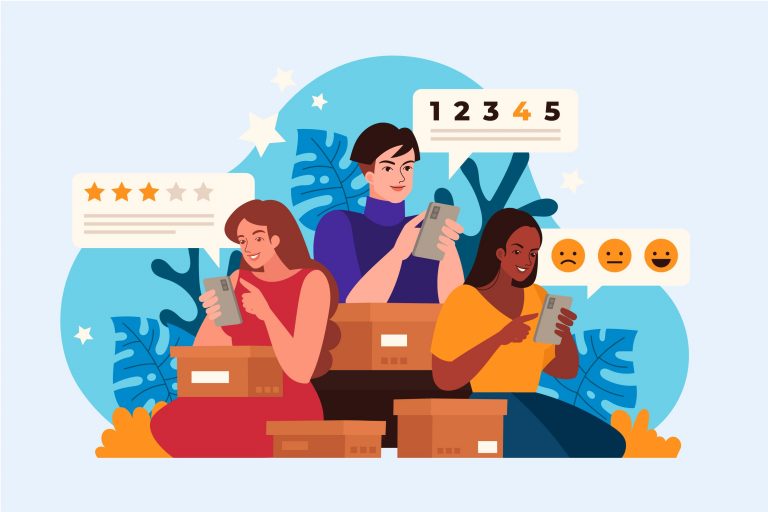
It is impossible to overstate the value of a repeat guest in the world of hotel sales. New customers cost anywhere between five and eight times more than existing customers, according to multiple studies. In addition to earning you a lot of revenue in the long run, creating an effective guest retention strategy can also provide you with some key benefits:
-
Build a loyal, profitable customer base.
-
Cost reduction for guest acquisition.
-
Build a strong promoter network.
-
Reduce the commission fees charged by OTAs.
-
Cross-sell and Upsell hotel services
It is, however, becoming increasingly challenging for hotels to differentiate themselves and craft a customer retention strategy that will keep their guests coming back in an environment where there are more OTAs, nontraditional hotel offerings, and increased competition, as well as instant feedback and reviews online.
Evaluate previous reservations to determine high-priority guests.
Begin by identifying and prioritizing previous guests, much like you would qualify potential new leads. To pinpoint your VIP guests, develop a model based on factors like recency, monetary contribution, and visit frequency. This categorization will help tailor your outreach strategy, taking into account their past behaviour and significance. It enables you to distinguish between recent guests and those who visited long ago, big spenders, frequent visitors, and one-time guests.
Once you’ve identified your VIPs—those who stayed recently, spent generously, and returned often—create a strategy to ensure their ongoing loyalty to your property. These individuals have the potential to become influential brand advocates. Building a personalized experience and a strong relationship with them is crucial.
Examine your Customer Relationship Management (CRM) system for dormant or previous leads.

Within your CRM lies a valuable repository of historical business data, waiting to be harnessed. It’s imperative that you regularly, ideally on a quarterly basis, sift through your older leads with the intent of identifying potential repeat clients. Keep in mind that a single mislabeled tag or an inaccurately categorized entry might obscure a promising lead. To mitigate this, adopt a comprehensive perspective and cast a wider search net. While this process may demand an investment of time, the potential long-term benefits in terms of time and cost savings make it a worthwhile endeavor.
Tailor your marketing efforts to align with your guests’ previous interests.
Once you’ve pinpointed promising leads within your CRM system, it’s time to initiate contact and provide added value. Take note of any past interests, activities, or behaviors that the guest exhibited during their previous stay, and leverage this information to shape your outreach. For instance, if they indulged in the brownie fudge sundae on multiple occasions during their last visit, consider sending a message offering a complimentary sundae when they make their next booking. If a group inquired about restaurant recommendations on their previous stay, send them a curated list of all the new dining establishments that have emerged since their last visit. Your CRM holds a multitude of possibilities for enhancing group business and securing repeat bookings, and your creativity is the only constraint.
Comprehend the driving factors that lead to repeat bookings.
In the realm of business travel, brand loyalty often hinges on the ability of brands to alleviate the feelings of loneliness, monotony, repetition, and stress that frequently accompany such journeys. Establishing environments that serve as substitutes for the comfort of family and home can be a formidable challenge, but it offers substantial rewards for those brands that manage to excel in this endeavor. Key elements such as personalized greetings from staff, meaningful gestures during both exceptional and challenging circumstances, and offers that demonstrate a genuine understanding of the individual begin to forge robust relationships that can provide a sense of family for weary travelers on the road.
The objective is to craft guest experiences that foster a sense of community, build relationships, and instill a feeling of home. This might encompass initiatives like hosting a morning coffee hour, providing a lending library, delivering a comforting bowl of chicken soup to a guest’s room when they’re unwell, addressing guests by name, and other such gestures. By grasping the motivations behind repeat bookings, you can focus your efforts on enhancing the positive aspects and eliminate any unnecessary endeavors.
Provide appropriate incentives for encouraging repeat bookings.
Your loyalty program should deliver value to your returning guests and entice them to choose your hotel repeatedly. However, extending beyond the confines of your brand’s loyalty program can yield even greater benefits and cultivate lifelong customers and brand advocates. Consider what might be more motivating: accumulating points on a card that may eventually lead to a complimentary one-night stay, or enjoying a complimentary coffee every morning during your stay at your preferred coffee shop? While loyalty points may represent greater monetary value for a guest, a personalized incentive can be substantially more motivating and imbue a more personal touch.
As you introduce repeat incentives, it’s crucial to track them within your CRM to monitor the ones that guests act upon. By associating these incentives with your guest booking personas, you’ll gain insights into what drives repeat bookings for different segments of your audience, enabling you to refine and focus your efforts accordingly.
Incorporate guest feedback into upcoming stays.

Imagine you had a wonderful experience at a hotel, but the transportation to and from the airport was a major inconvenience. You express this in your hotel review and decide you might not stay there again due to that issue. Fast forward six months, and you receive an email from the same hotel, informing you that, thanks to your review, they now offer complimentary airport transportation. Would this encourage you to reconsider staying at the hotel?
Guest feedback serves not only as a potent tool for enhancing your offerings but also as a significant motivator for future stays when acted upon. Utilize guest feedback to personalize your communication and establish trust with your guests. Record any feedback you receive in your CRM so that when you reach out in the future, you can tailor your message accordingly. An email acknowledging their enjoyment of the rooftop garden during their last stay demonstrates that you’ve listened to the guest and genuinely care about making their stay special.
Identify your VIPs and customize their experience.
Once your guests have checked in, your primary focus should be on serving and catering to their individual preferences and requirements through gracious, personalized service. At the end of the day, traditional customer service remains one of the most effective strategies for guest retention. As per a study conducted by MCD Partners, 74% of travelers expressed a desire for proactive engagement from hotels to enhance their stay. The more you can deliver an exceptional experience to your VIPs, the higher the likelihood they will choose to return.
It’s crucial to identify your VIPs before their arrival and ensure that your staff is well-informed about their specific needs and desires in advance. Address them by name, arrange for their preferred beverage to be in their room, or provide a list of the finest Italian restaurants in the city on their desk – these small gestures require minimal time but can significantly contribute to forging a strong relationship with your most valued guests.
Implement automated follow-up processes to maintain ongoing communication.
You don’t have to burden your staff with every aspect of your outreach efforts. Through the use of marketing automation, you can establish a structured communication plan with guests at critical intervals following their stay, such as 1 day, 1 week, 1 month, and 3 months after. During these touchpoints, you can solicit feedback or reviews, seek referrals, offer incentives for future bookings, provide personalized value-added services, or supply customized information tailored to their interests. Automating your outreach guarantees that no communication is overlooked and provides greater flexibility for personalizing messages to cater to distinct audience segments.
With these eight customer retention strategies in place, your hotel is well-prepared to cultivate a loyal clientele who feel genuinely appreciated and comprehended. As a result, they will keep returning to your establishment time and time again.
And remember, it’s essential to acknowledge and incentivize your repeat guests. Explore cost-effective options for providing perks and rewards to those who make group bookings.

